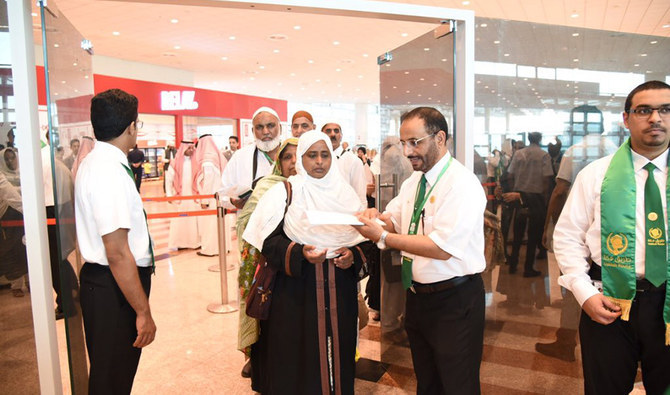ISLAMABAD: Pakistan has started working on a contingency plan to protect Hajj pilgrims from the deadly coronavirus during their stay in Saudi Arabia, officials said on Monday.
“We are aware of the health concerns of our pilgrims, and (are) devising a comprehensive contingency plan to deal with contagious diseases like the coronavirus,” Imran Siddiqui, spokesman for the Ministry of Religious Affairs, told Arab News.
He said that the ministry was in touch with Saudi health officials.
Nearly 179,210 Pakistani pilgrims are expected to perform Hajj this year, with those applying under a government scheme to be chosen through a ballot on Thursday. According to the government Hajj policy, 60 percent (107,526) pilgrims would be allocated to the government Hajj scheme while the other 40 percent (71,684) would perform the Hajj through private tour operators.
Islamabad has received 149,330 Hajj applications against the government quota. Last year, the government received over 216,000 applications against the same Hajj quota.
“This drop in the number of Hajj applications as compared to the previous year is due to high inflation and cost of the pilgrimage,” Siddiqui said.
Meanwhile, the ministry said that it had completed all arrangements to facilitate pilgrims during their stay in Saudi Arabia.
“We are moving ahead as per our plans without taking the coronavirus scare into consideration,” Siddiqui said, adding that “all pilgrims will be vaccinated and screened” as per the World Health Organization’s (WHO) guidelines.
Thus far, seven coronavirus infections have been confirmed in the country, with one patient reported to be out of danger and discharged on Saturday.
The virus has killed more than 3,800 people and infected more than 108,000 globally, resulting in widespread panic and closure of museums, parks, religious sites and public areas in several countries across the world.
Hajj is an annual pilgrimage to Makkah which is one of the holiest sites for Muslims. It is a mandatory religious duty for physically and financially able adult Muslims to perform Hajj at least once in their lifetime.
















